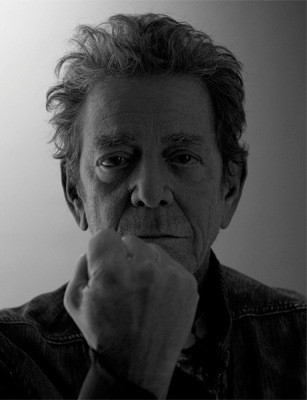
In today’s New York Times, book critic Michiko Kakutani offers a beautiful tribute to Lou Reed. It is fitting that Lou Reed, the New York outsider who documented the outsiders of New York, should now be celebrated in the ultimate New York establishment media, the New York Times.
About the New York that Reed wrote and sang about in song for close to 50 years, Kakutani writes, it was “as distinctive as Chandler’s Los Angeles or Baudelaire’s Paris.”
Kakutani continues:
Mr. Reed was a pioneer on rock’s frontier with the avant-garde, translating lessons he learned at Andy Warhol’s Factory, and the disruptive innovations of the Beat writers — Allen Ginsberg, William S. Burroughs and Hubert Selby Jr. (“Last Exit to Brooklyn”) — to the realm of popular music. He not only embraced their adversarial stance toward society and transgressive subject matter (in songs like “Street Hassle” and “Heroin”) but also developed his own version of their raw, vernacular language, while adding a physical third dimension with guitars and drums. His early songs for the Velvet Underground — delivered in his intimate, conversational sing-speak — still sound so astonishingly inventive and new that it’s hard to remember they were written nearly half a century ago.
If Mr. Reed provided a literary bridge to the Beats (and through them, back to the Modernists, and the French “decadents” Rimbaud and Verlaine, and even Poe, the subject of his 2003 project “The Raven”), he also created a bridge forward to punk and to glam, indie, new wave and noise rock. He would become a formative influence on musicians like Talking Heads, Patti Smith, Roxy Music, R.E.M., the Sex Pistols, Sonic Youth, the Strokes, Pixies, and Antony and the Johnsons. As his friend the artist Clifford Ross observed, “Lou was the great transmitter” — of ideas, language and innovation.
Read the whole essay at the New York Times.